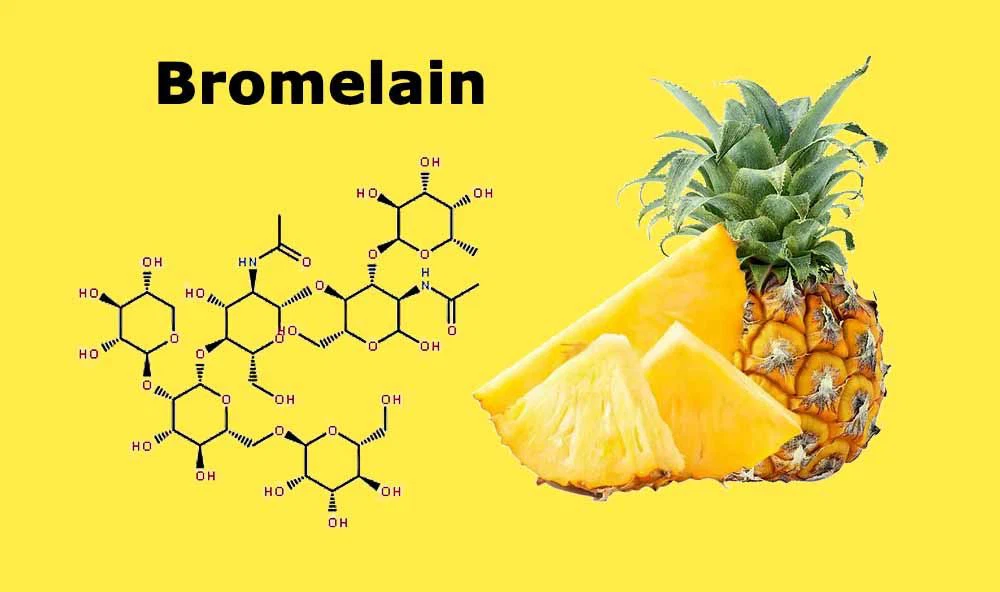Have you ever experienced a strange, tickling sensation in your mouth after eating a slice of juicy pineapple?
You’re not alone.
This strange feeling has made many wonders if this tropical delight secretly bites back at them with every bite.
The truth behind this phenomenon is both fascinating and slightly frightening.
Pineapple, a sweet and tangy fruit, is a favorite among many. However, its unique properties have raised questions about its potential to cause oral discomfort.
In this article, we’ll discuss the science behind pineapple’s digestive benefits and the enzyme responsible for the tingling sensation that some experience.
We’ll study why pineapple seems to “eat you back” and provide tips on enjoying this nutrient-packed fruit while minimizing unwanted side effects.
Join us as we solve the mystery of pineapple’s fascinating characteristics and learn how to savor its deliciousness without worrying about any “revenge” it might take on your taste buds.
What Makes Pineapple Unique?

Two key components of pineapple’s impact on digestion stand out: dietary fiber and the remarkable enzyme bromelain.
This tropical delight boasts an impressive nutrient profile that positions it as a potential ally for optimal gut health.
Pineapple is a valuable source of soluble and insoluble fiber, essential for maintaining a well-functioning digestive system.
Soluble fiber dissolves in water, forming a gel-like substance that helps regulate bowel movements and prevents constipation.
Insoluble fiber, on the other hand, adds bulk to the stool, promoting regular elimination and ensuring waste moves smoothly through the intestines.
A single cup of fresh pineapple chunks provides approximately 2.3 grams of fiber, contributing to the recommended daily intake of 25-30 grams for adults.
Consistent consumption of high-fiber foods like pineapple can combat issues like irregular bowel movements, bloating, and discomfort.
However, pineapple’s true digestive superpower lies in bromelain, a proteolytic enzyme that breaks down protein molecules.
This unique compound is found primarily in the stem and core of the pineapple plant and aids in the digestion and absorption of proteins from various food sources.
Furthermore, bromelain exhibits anti-inflammatory properties that may soothe inflammation in the gut lining, alleviating discomfort associated with conditions like irritable bowel syndrome (IBS) or inflammatory bowel disease (IBD).
Its potential to modulate gut bacteria balance also hints at broader implications for overall digestive well-being.
Thus, pineapple’s unique combination of fiber and bromelain positions it as a natural digestive aid, capable of promoting regular bowel movements, enhancing protein digestion, and potentially reducing inflammation within the gastrointestinal tract.
Bromelain – Pineapple’s Protein-Digesting Powerhouse

Bromelain is at the heart of pineapple’s digestive prowess, a remarkable proteolytic enzyme that has garnered significant attention for its ability to break down proteins.
This naturally occurring compound is a complex mixture of enzymes derived from the pineapple plant’s stem and core.
It exhibits a unique capacity to cleave the peptide bonds that hold protein molecules together.
Bromelain’s mode of action is akin to that of the digestive enzymes produced by the human body, such as pepsin and trypsin.
However, bromelain’s unique structure and pH sensitivity complement and enhance the body’s digestive processes, particularly in the stomach’s acidic environment.
When consumed, bromelain initiates the breakdown of dietary proteins into smaller, more easily absorbable peptides and amino acids.
This preliminary digestion eases the workload on the body’s digestive system, potentially reducing symptoms of indigestion, bloating, and discomfort often associated with protein-rich meals.
Numerous studies have explored bromelain’s efficacy in enhancing protein digestion and managing digestive disorders.
One notable research paper published in the journal Biotechnology Research International examined bromelain’s ability to improve the digestion of gluten, a protein found in wheat that can trigger adverse reactions in individuals with celiac disease or gluten sensitivity.
The study’s findings indicated that bromelain effectively hydrolyzed (broke down) gluten proteins, suggesting its potential application in mitigating the symptoms associated with gluten intolerance.
Further research has also highlighted bromelain’s potential in alleviating symptoms of inflammatory bowel diseases, such as Crohn’s disease and ulcerative colitis, by reducing inflammation in the digestive tract.
While more extensive clinical trials are warranted, the existing evidence underscores bromelain’s unique role in supporting digestive health.
From enhancing the breakdown of dietary proteins to potentially mitigating the adverse effects of certain food intolerances, this pineapple-derived enzyme offers a natural and promising avenue for optimizing nutrient absorption and promoting overall digestive well-being.
The Dual Role of Dietary Fiber in Pineapple

In addition to bromelain’s protein-digesting capabilities, pineapple’s dietary fiber content plays a crucial role in supporting a healthy digestive system.
This tropical fruit is a valuable soluble and insoluble fiber source, offering unique benefits for optimal gut function.
Soluble fiber, or fermentable fiber, readily dissolves in water, forming a gel-like substance that aids bowel movement regulation.
As it travels through the digestive tract, soluble fiber attracts water, adding bulk and softening the stool, facilitating smoother and more regular bowel movements.
Conversely, insoluble fiber, often roughage, remains unchanged as it passes through the digestive system.
This type of fiber acts as a gentle abrasive, promoting the movement of food and waste through the intestines by providing bulk and stimulating muscular contractions within the gut.
A single cup of fresh pineapple chunks contains approximately 2.3 grams of dietary fiber, a combination of soluble and insoluble varieties.
While this fruit and vegetable’s fiber content is not exceptionally high compared to some other fruits and vegetables, it can still significantly contribute to meeting the recommended daily intake of 25-30 grams for adults.
Adequate fiber intake is essential for maintaining regular bowel movements, preventing constipation, and promoting a healthy gut environment.
Fiber adds bulk to the stool, reducing the risk of straining during bowel movements and decreasing the likelihood of developing hemorrhoids or other related issues.
Moreover, fiber is crucial in supporting the growth and maintenance of beneficial gut bacteria, collectively known as the gut microbiome.
These bacteria thrive on the fermentable fibers found in pineapple and other plant-based foods, producing short-chain fatty acids that nourish the cells lining the colon and promote overall digestive health.
By incorporating pineapple into a balanced diet rich in fiber-dense fruits, vegetables, and whole grains, individuals can harness the synergistic power of soluble and insoluble fibers to promote regular bowel movements, prevent constipation, and foster a thriving gut microbiome, ultimately supporting optimal digestive function and overall well-being.
Navigating Pineapple’s Effects on Acid Reflux and Gut Health

While pineapple’s fiber and bromelain offer potential digestive benefits, its impact on acid reflux and gut inflammation presents a more nuanced picture.
The relationship between this tropical fruit and these conditions is intricate, with potential advantages and risks to consider.
Acid reflux, also known as gastroesophageal reflux disease (GERD), occurs when stomach acid flows back into the esophagus, causing discomfort, heartburn, and a sour taste in the mouth.
Pineapple’s acidic nature has led some healthcare professionals to recommend caution for individuals with severe acid reflux or active stomach ulcers, as the fruit’s acidity could potentially exacerbate symptoms.
However, pineapple’s bromelain content may offer a counterbalancing effect.
This remarkable enzyme exhibits potent anti-inflammatory properties, which could help soothe inflammation in the digestive tract and potentially alleviate the discomfort associated with acid reflux.
Pineapple’s bromelain may provide a natural, gentle means of reducing inflammation and promoting overall digestive comfort for those with mild to moderate reflux symptoms.
Moving beyond acid reflux, bromelain’s anti-inflammatory capabilities hold promise for individuals grappling with inflammatory bowel disorders such as irritable bowel syndrome (IBS) and inflammatory bowel disease (IBD).
These conditions are characterized by chronic inflammation in the gut, leading to symptoms like abdominal pain, diarrhea, and constipation.
Studies and Research on Bromelain
Numerous studies have explored bromelain’s potential in mitigating the inflammation associated with these disorders.
One notable research paper published in the journal Phytotherapy Research demonstrated bromelain’s ability to reduce inflammatory markers and alleviate symptoms in individuals with ulcerative colitis, a form of IBD.
While further research is warranted, the existing evidence suggests that pineapple bromelain could offer a complementary approach to managing the inflammation and discomfort associated with various digestive disorders.
However, individuals must consult with healthcare professionals, especially those with severe acid reflux or active gastrointestinal conditions, to ensure pineapple’s safe and appropriate incorporation into their diets.
Additional Digestive Benefits and Potential Risks

Pineapple’s impact on digestion goes beyond its protein-digesting properties.
The tropical fruit may also positively influence gut bacteria balance, which is crucial for overall digestive health.
Bromelain, the key enzyme in pineapple, has been studied for its potential to maintain a healthy gut microbiome.
A well-balanced gut flora is essential for breaking down food and producing beneficial nutrients, and pineapple’s natural compounds could support this process.
Moreover, pineapple is a good source of dietary fiber, which aids in regular bowel movements and prevents constipation.
Fiber helps add bulk to the stool and promotes the growth of friendly gut bacteria.
Including fiber-rich foods like pineapple can keep your digestive system running smoothly.
However, it’s important to consider that pineapple’s effects on digestion may vary from person to person.
While many enjoy the fruit’s digestive benefits, others, particularly those with pre-existing digestive issues, may experience discomfort.
For example, people with acid reflux or gastroesophageal reflux disease (GERD) may find that pineapple aggravates their symptoms.
The fruit’s acidity can irritate the esophagus and stomach lining, leading to heartburn and discomfort.
If you have a sensitive digestive system or are prone to acid reflux, it’s best to consume pineapple in moderation and observe how your body reacts.
Additionally, some people may experience mild digestive side effects after eating pineapple, such as bloating, gas, or diarrhea.
This can be due to the fruit’s high fiber content or individual sensitivities to certain compounds in pineapple.
If you notice persistent digestive issues after consuming pineapple, it’s advisable to reduce your intake or consult with a healthcare professional.
Conclusion
While pineapple’s digestive benefits are noteworthy, potential risks must be considered, especially for those with sensitive stomachs or acid reflux.
The question “does pineapple eat you back?” highlights the fruit’s powerful digestive enzymes, which can cause discomfort in some individuals.
However, for most people, enjoying pineapple in moderation as part of a balanced diet can support healthy digestion and provide various other health benefits.
As with any food, it’s crucial to listen to your body and consult a healthcare professional if you experience persistent issues.
By understanding both pineapple’s advantages and potential drawbacks, you can make informed decisions about incorporating this tropical fruit into your diet and reap its many rewards while minimizing unwanted effects.






